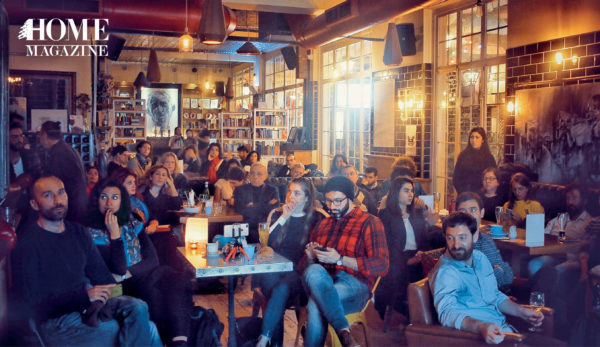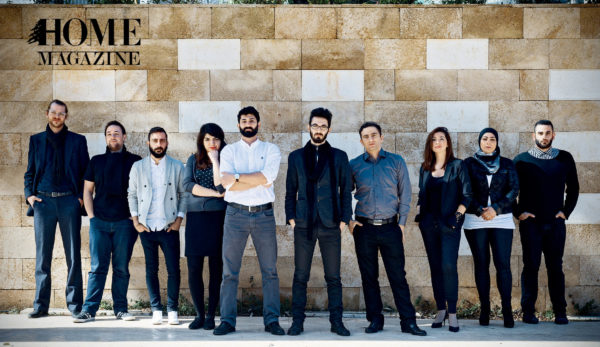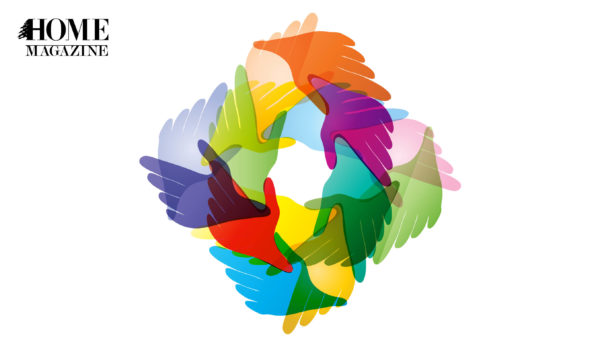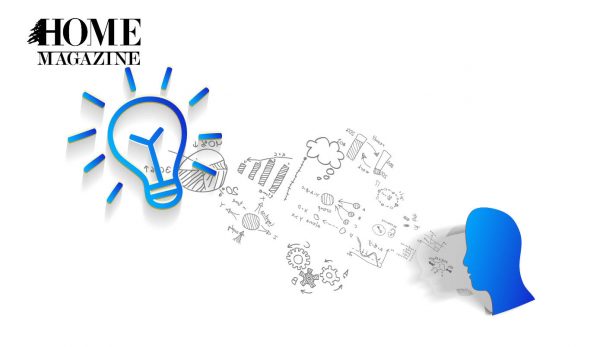Save the Children Lebanon faces the unique challenge of serving 1.4 million children in the country in need of basic services — from food and water to protection and education.
From the outside, it looks like a typical villa in one of Lebanon’s mountains, nestled between orange groves and olive branches. Stepping inside, however, a cornucopia of colors and handmade crafts meets the eye. Papier-mâché figures of cartoon characters and holiday-themed décor hang along the hallway walls. Arabic and English language displays of the alphabet, numbers, days of the week, months of the year, seasons, shapes, the five senses, natural science projects, nutrition, manners and safety protocols line the classroom walls in one of Save the Children Lebanon’s nonformal schools.
“There are so many stories of resilience and strength.”
According to Save the Children Lebanon’s latest annual report (2016), there are approximately 2.16 million children in Lebanon, and 1.4 million children here need basic services. In 2016, the organization served 15,030 children in education programs and 37,814 in child protection programs; it provided 184,234 with water, sanitation, hygiene and shelter assistance, 86,537 with multipurpose cash assistance, and 78,744 in income-generation support programs.
This international NGO’s mission is to achieve breakthroughs in the way the world treats children and to create real and lasting change in their lives. This is done through ensuring their rights to education, participation and protection. They make sure children are not abused at HOME, support children in alternative care, try to move them out of orphanages and into foster care, tackle child labor on and off the streets, and do everything in their power to give children equal opportunities to education.
“In Lebanon,” Save the Children Lebanon’s country director Allison Zelkowitz told HOME magazine, “we work through institutions. For example, we are working with the Ministry of Education right now, trying to support them in terms of including an inclusive education in their strategy that is making sure kids with disabilities are included. We primarily work with refugees right now in Lebanon, for Syrian and Palestinian refugees, but we also have some programs that support vulnerable Lebanese children as well.” As country director, Zelkowitz helps set the strategy for Lebanon. She manages all of Save’s programs within Lebanon and tries to secure funding for the country office by meeting with donors, both in Lebanon and abroad.
She continually advocates for children in Lebanon and tries to highlight what the issues are for children here. Many of the children, as Zelkowitz explained, have been touched with conflict and have witnessed great atrocities, such as their friends being killed or their houses being destroyed, and many are living in communities that are not their own. They have had to persist under these conditions and deal not only with physical deprivations but also mental ones.
“What inspired me to work with children in Lebanon specifically was knowing that it was a perfect combination of fascinating and meaningful work, plus a beautiful and warm place to live,” said Zelkowitz.
“What makes Lebanon’s situation unique is the incredible burden and responsibility Lebanese are facing because of this high influx of refugees. Lebanon has so many different political and ethnic groups, and yet everyone seems to find a way to get along and persist, and keep solving issues. What we can achieve with this kind of team can be greater than in some countries in the world.”
There are so many stories of resilience and strength that stand out in this organization’s archives. There is the story of Sultan,* for example, a little boy about 12 years old who was living in Bekaa and spent his days selling tissues on the streets.
“Sultan came and knocked on our door and asked us for help because he wanted to go to school,” Zelkowitz said. “So we worked with him and his family and provided them with a small stipend and negotiated with them to get him into school. He’s now advocating and speaking directly with children, telling them they need to tell their parents and families that they want to go to school to have a future, and that this is their right. I think this is the ideal situation where a child himself is saying, ‘This is what I want,’ and we are facilitating him and helping him to start to achieve his dreams,” she said.
Save the Children is the second largest independent NGO globally, but they are the largest independent organization for children, so their impact worldwide is massive. They work in over 100 countries, campaigning for and highlighting children’s rights — not only their needs for food, shelter and water, but also their right to education and protection.
“Translating that into a more empowering language for children is important,” Zelkowitz noted. “In Lebanon, because of the crisis, a lot of our work over the past five years has been with refugees, but I am highly aware that there are hundreds of thousands of very vulnerable Lebanese children. I want to make sure that we are reaching the absolute most vulnerable Lebanese children in the country, that those who are disabled or too poor to go to school, those who are facing violence at HOME, I hope that we will have really made an impact with them.”
“What makes Lebanon’s situation unique is the incredible burden and responsibility Lebanese people are facing because of this high influx of refugees.”
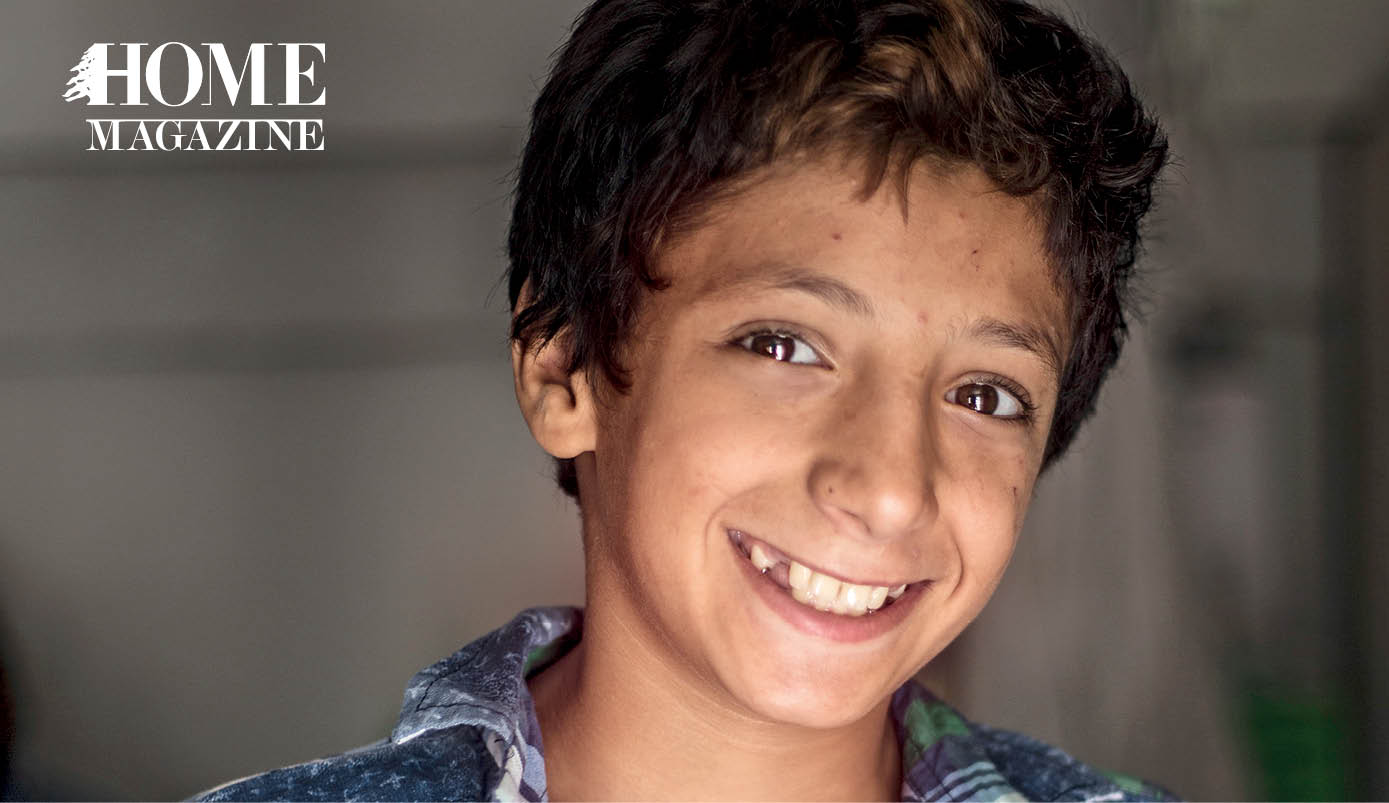 Education brings us together
Education brings us together
Observing a classroom from one of Save’s nonformal schools, which was converted from a large house in the mountain area of Aitet, about 30 minutes from Beirut, HOME witnessed children from 3 to 5 years old, practicing being polite with one another, cleaning up their own tables after snack time, and singing along to tunes.
The children later gathered in a circle around the teacher and explored the tools and equipment that various professions and careers use. Once the teacher demonstrated to the group what each job entails, she assigned each child a profession to engage in a role-playing activity — a little carpenter with a plastic hammer, a doctor with a stethoscope and toy heart rate monitor, and a chef with a cooking pan and vegetables. Their high-pitched squeals of laughter and joy echoed around the classroom.
Save the Children Lebanon’s education facilitation programs accommodate particularly vulnerable children who cannot afford to go to kindergarten by providing direct support to enroll them in public schools. They also engage children in quality Non-Formal Education programs that prepare out-of- school children to re-enter formal classes. As of September 2017, Save’s Early Childhood Care and Development classes have welcomed more than 5,000 children. Save initiates outreach programs in the different areas by contacting the municipality to see if there are particular needs of the children in that community. Save workers go door-to-door, searching for families in need, under the assumption that most parents would not deny their children the right to quality education. Free food and snacks are provided for the children, as well as transportation via bus to and from the center each day; the bus driver is even trained in child safeguarding.
“Save the Children has centers all over Lebanon, in Bekaa, Tripoli, Mount Lebanon,” said Leila Assi, Save’s education officer in Beirut. “The Beirut field office has around nine centers and manages its programs in Mount Lebanon and the south. Children attend one of two 3-hour shifts, with the morning starting at 8:30 a.m. and the afternoon shift starting at 12:00 p.m. The goals that we try to reach depend on MEHE’s (Ministry of Education Higher Education) goals.
“We base our curriculum on what they expect children to learn within a one year cycle. Those are the standards we strive for. Emergent Literacy and Math is a training given to the teachers before beginning. Their lesson plans are also based on that outline,” Assi said. One especially valuable program Save implements is Healing and Education through the Arts (HEART), which is done once a week in each class. HEART allows kids to express what they feel through soothing activities such as painting or free play while the teacher observes their behavior. The children do an activity that has a goal behind it. Rather than being a mandatory activity for the kids, it’s more a way for them to open up. Every child can choose whether they want to do it or not.
“The reason they need healing,” Assi clarified, “is because of their backgrounds, the wars and traumas they’ve encountered. There are a lot of different cases. Most of the children, before joining us at our schools, come here crying and are unable to accept a new environment. Many had aggressive behavior prior to arriving because of what they’ve been through. The older children have probably seen their schools bombed, their houses basically taken. They fled the war, traveled at night.
“All of this creates a fear and mindset that we try to help them through. They don’t have any educational background because they are so young. Some are six years old and have no education. Over time, we can see the change and the progress they make. They begin to love coming here, and they love everything about it.”
Inclusion of special-needs children is a major aspect of Save the Children’s goals for education, regardless of where they come from or the conditions from which kids suffer, whether they are physical or psychological. Save educators say their job is to break through those barriers and ensure that discrimination has no place, that education helps children to overcome any sufferings they’ve experienced.
“In our schools, there is no discrimination,” Assi said. “There is no hatred based on religion or place of origin or certain political affiliations. We make sure that everyone feels at HOME and that they are equal.”
“In Lebanon, we found that there are 500,000 children from all backgrounds and nationalities currently out of school.”
Reaching every last child
Save the Children’s most recent international campaign is called “Every Last Child,” but in Lebanon, they chose to call it “Their Education, Our Future” because the local focus is primarily on education. This campaign is based on the principle that “every child in Lebanon between the ages of 3 and 18 should have an equal opportunity to access free, high-quality education” to prevent an entire generation from being lost.
“In simple terms, this project wants to give every child the right to education,” Save’s media and communications officer Ahmed Bayram told HOME. “In Lebanon, we found that there are 500,000 children from all backgrounds and nationalities currently out of school, so we’re calling on the community, on those who have power, to basically give them their right to education. We’re calling for more spaces in schools, more recognition of the need for nonformal education. We also want the public to understand the importance of education as an essential need for children, just like food or a house. Education is a basic right, so we want people to put that back on their list of priorities.”
One of the most notable services that Their Education, Our Future has initiated is HOMEwork support groups for children who are currently in schools but are at risk of falling behind. Save strives to give more children formal education by supporting them and preparing them, rather than acting as a replacement for formal education.
“What sets this apart from other projects at Save is that we’ve seen great interaction from the community,” Bayram said. “It targets all community members. Save has been active in Lebanon for 60 years, but this is the first time that we spread the message with such intensity. We’ve brought these human faces, not just children but also older individuals, and their stories to the forefront.
“Parents should understand more and appreciate more, employers should stop hiring children, teachers should make the education environment more engaging and friendly.”
Their Education, Our Future, as the name suggests, doesn’t just address children, it’s all of us. Children are the makers of tomorrow. If we don’t prepare them in the right way, we will all regret it. It’s in everyone’s interest to make education not just a right, but accessible for everyone.
*Children’s names have been changed for protection purposes.
For more info:
https://lebanon.savethechildren.net
Twitter: @SaveChildrenLEB





